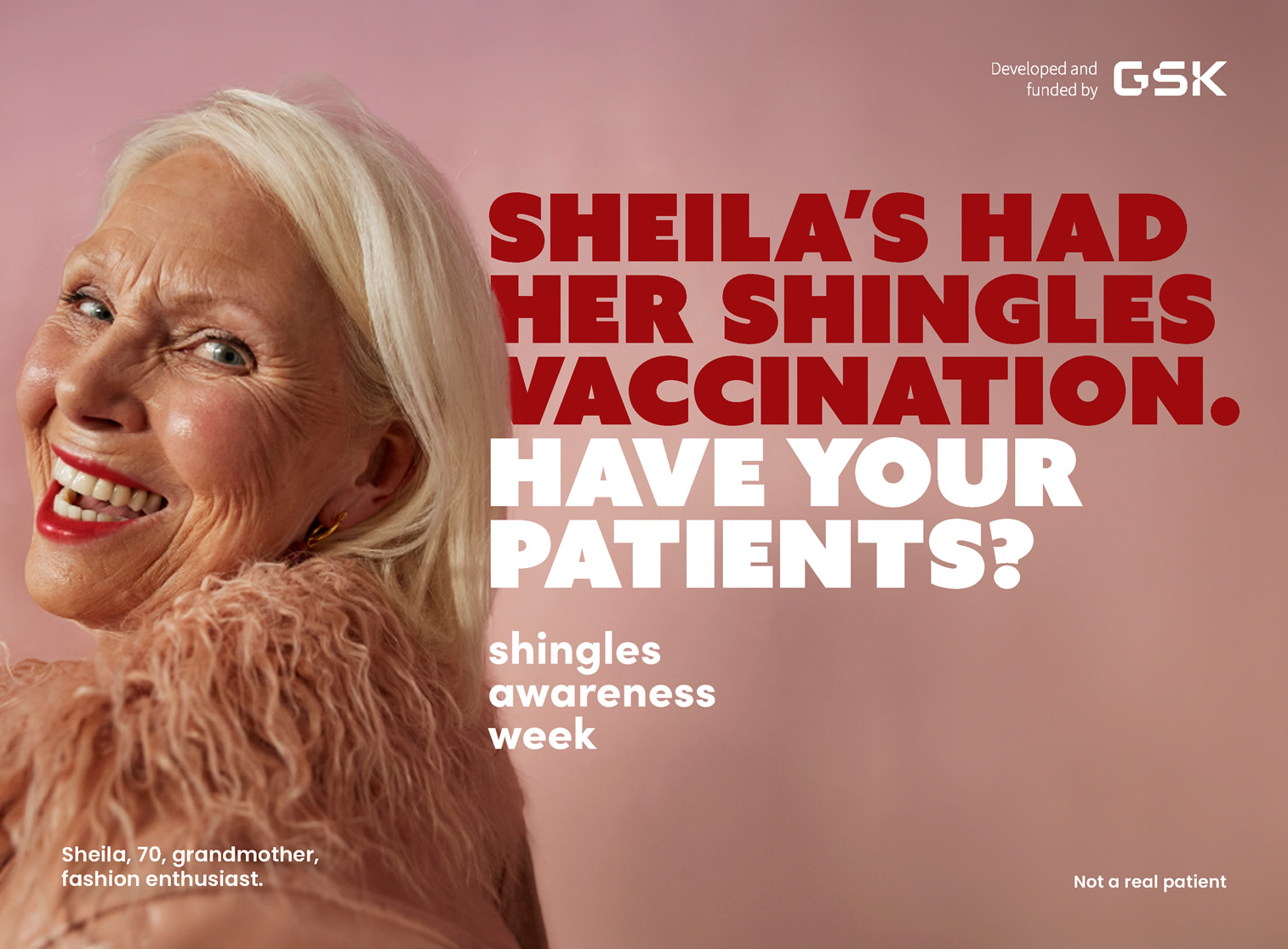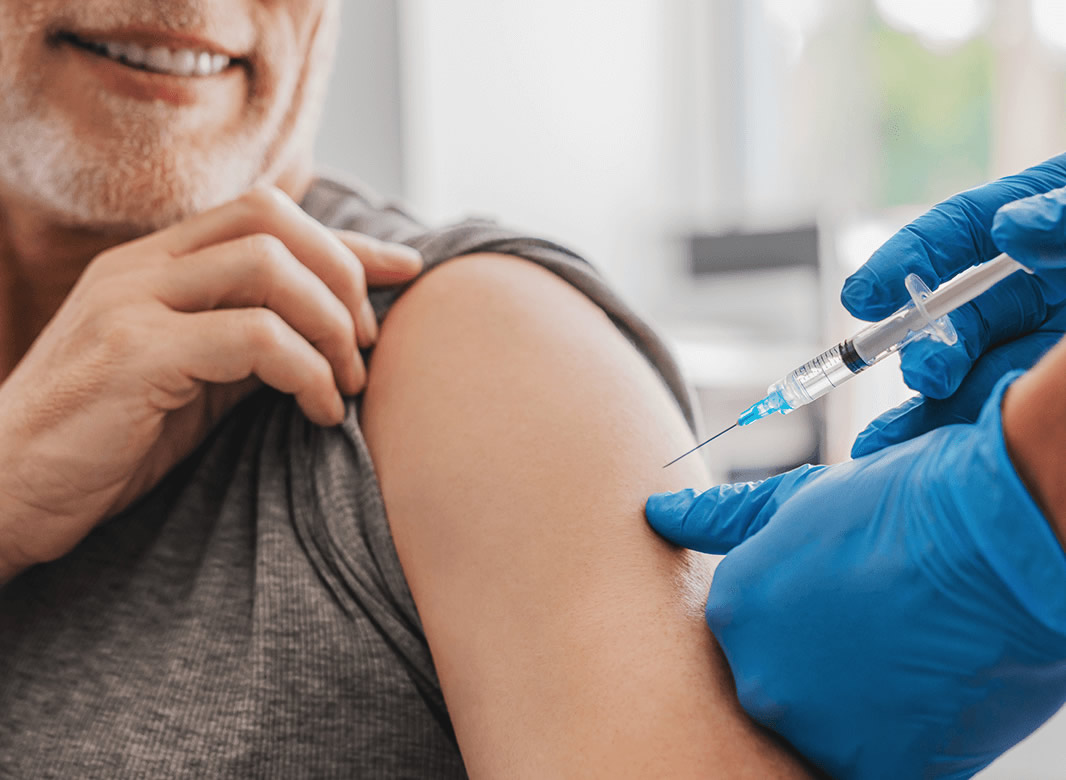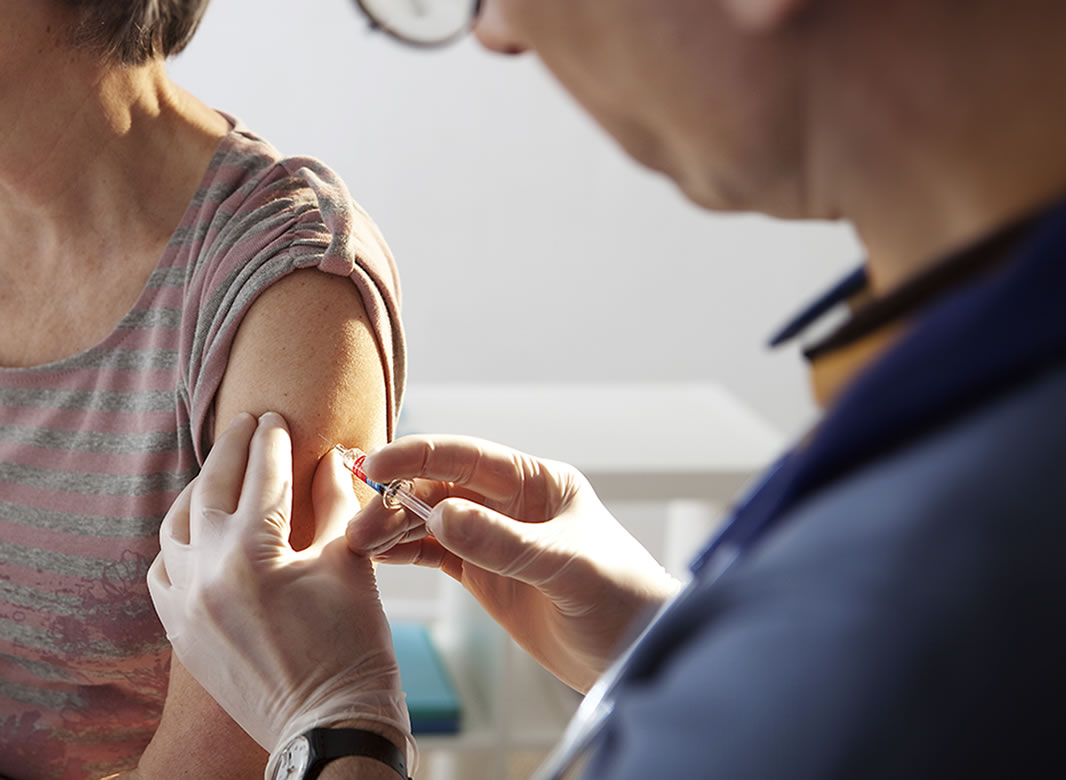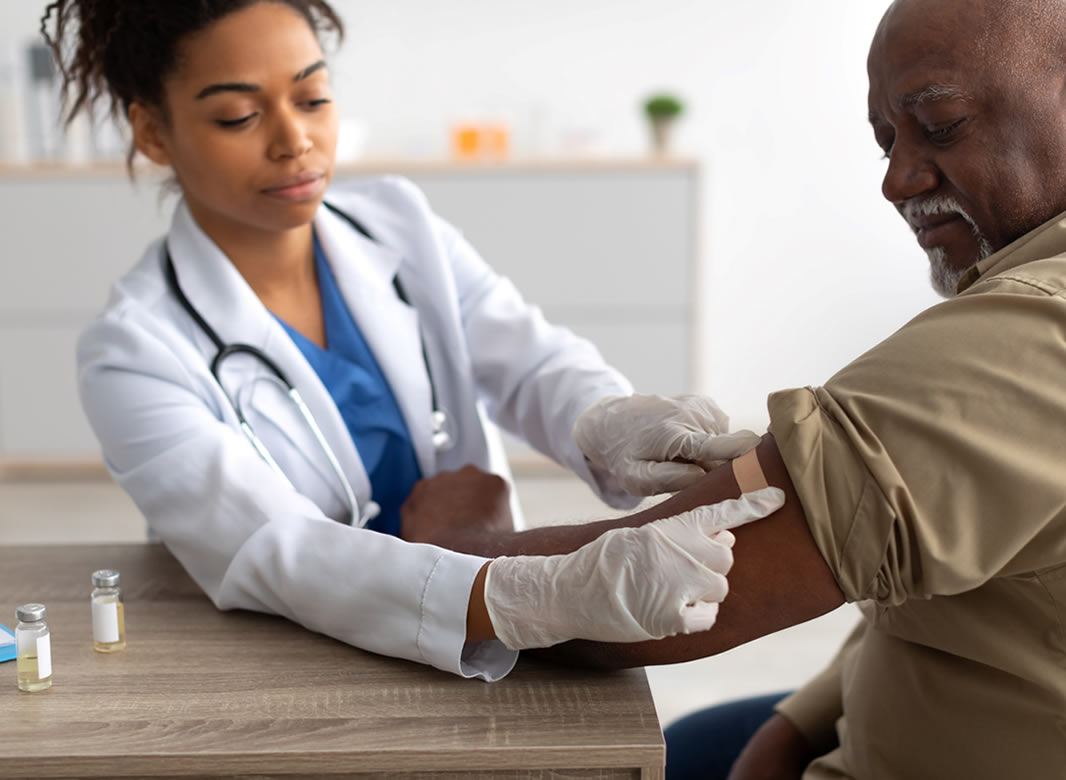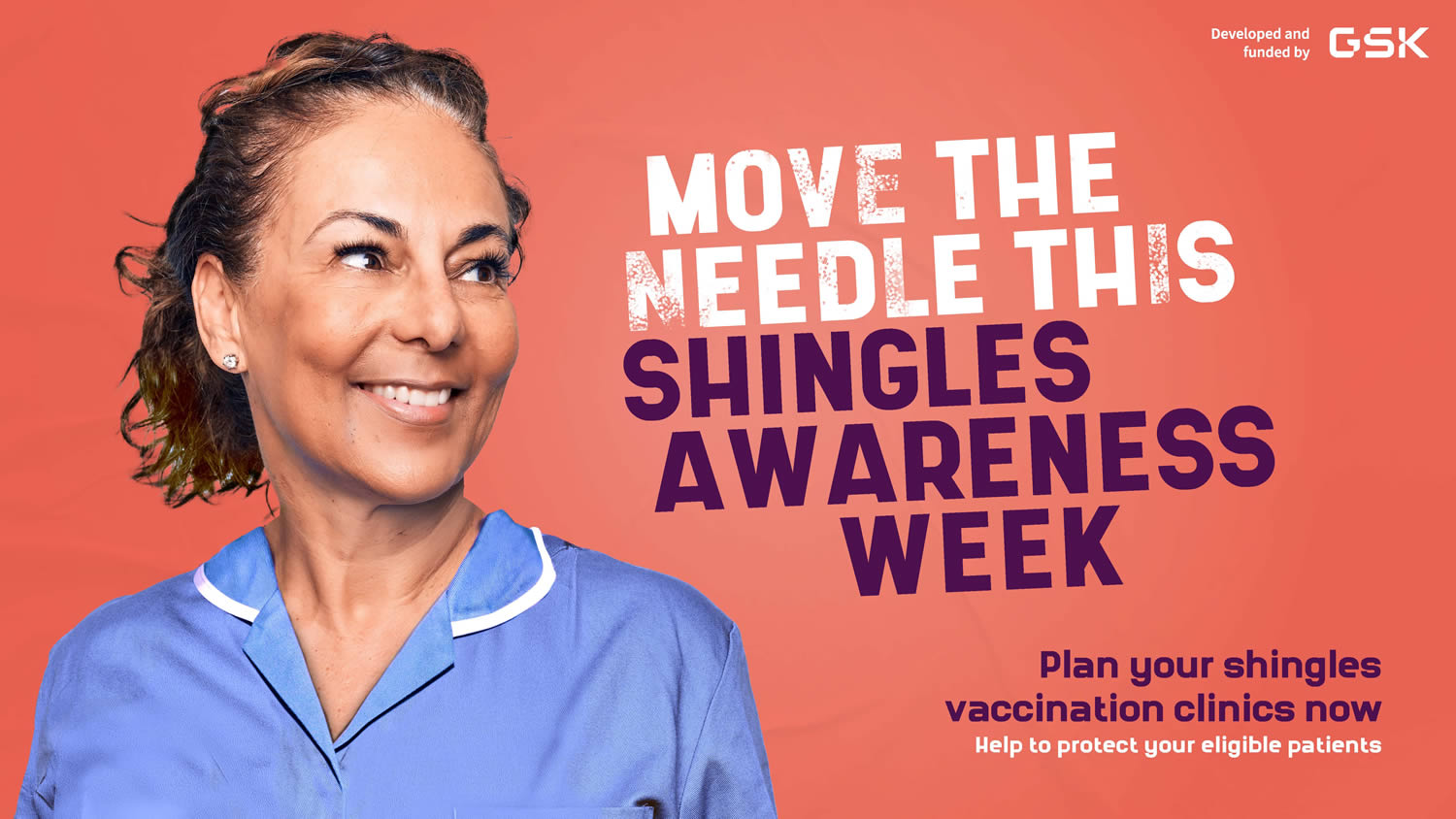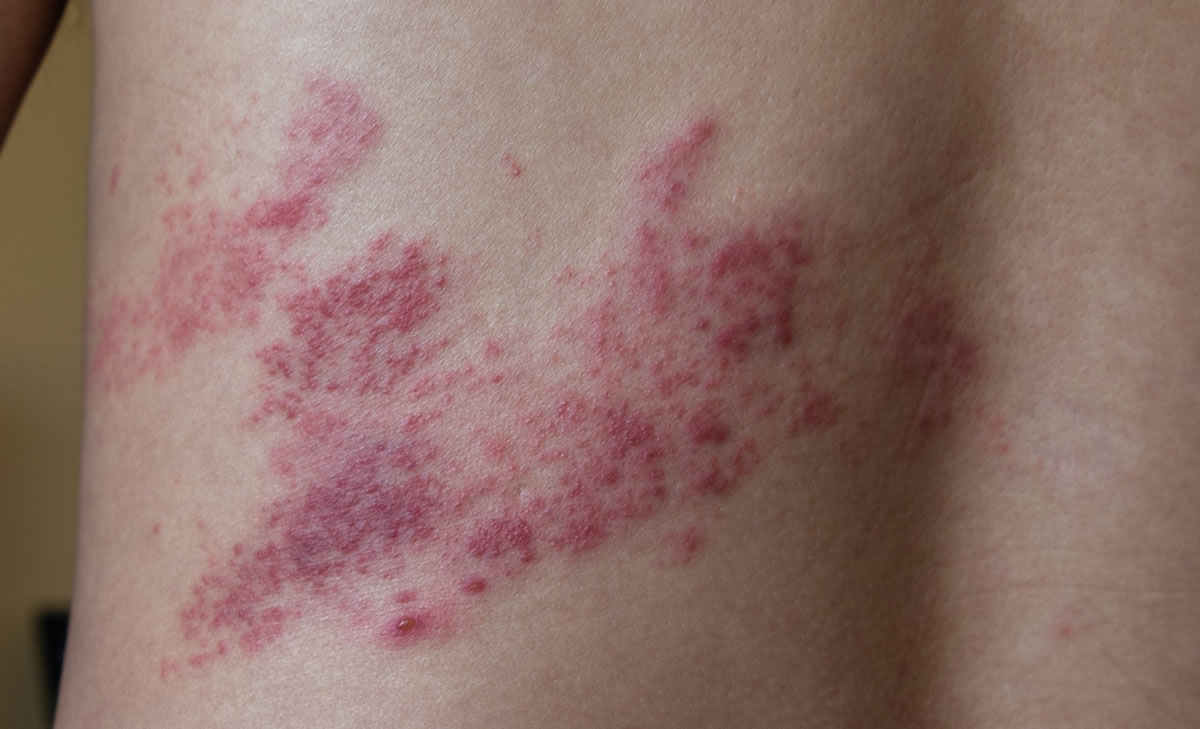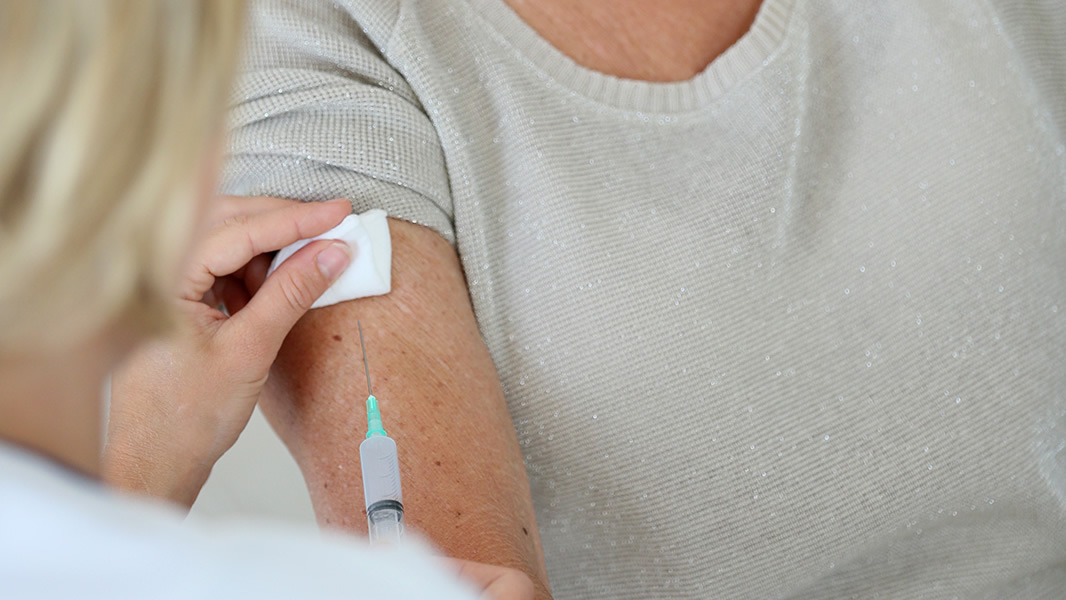
The Shingles National Immunisation Programme
Welcome to the illuminate Shingles National Immunisation Programme page.
Here you will find the most recent guidance on the Shingles National Immunisation Programme, along with practical support to ensure you can effectively implement it in your clinical practice.
Adverse events reporting and prescribing information can be found at the bottom of the page.
Healthcare professionals have been consulted by GSK and received honorarium.
The Shingles National Immunisation Programme changed on 1st September 2025
Since the introduction of the shingles vaccination programme in September 2013, there has been a yearly decline in vaccine uptake.1 You and your immunisation team have the opportunity to review and optimise your implementation of the Shingles National Immunisation Programme to help protect people from shingles.
From 1st September 2025, eligibility for shingles vaccination has expanded to include all severely immunocompromised individuals aged 18 and over.2
What will you do to drive shingles vaccination uptake and efficiencies to reduce any impact on the practice?
Eligibility for shingles vaccination from 1st September 20251,4

How is your practice seizing this opportunity? Six tips for NIP implementation
1. Identifying eligible people
With vaccinations, we have the tools to help prevent a number of serious infectious diseases,3 and the first stage of enabling this is to identify eligible patients.
See below to learn more.
Make sure you regularly check for all newly-eligible patients, such as those who have a relevant birthday coming up, or those with changes to their medication that may mean they become severely immunocompromised.4 Remember, the shingles vaccine can be offered at any time of the year, so there is no need to restrict it to certain seasons like some other seasonal vaccines.4
Also, keep a look out for any eligible patients who have previously been missed or declined the vaccination, and encourage them to come in and get vaccinated.
Keep reading for some tips to help increase patient uptake of vaccines.


2. Inviting and informing your patients
One of the things that I advise clinicians, is to provide an opportunity for patients, or their guardians, to ask questions if they are apprehensive about booking an appointment for a vaccine. I try and encourage surgeries to have a call back system, an enquiries/comments box, or some way for patients to gain the clarity and reassurance they need to book to have the recommended immunisation.

Joanna Lowry
Immunisation Specialist Nurse and Educator
Hampshire
Once you've identified your eligible patients, invite them for an appointment, aiming to include information on shingles and the vaccine to help inform their decision.
- Invites to inform eligible patients should be via their preferred option, this could include:
- SMS
- Letter
- Phone
- Consider what information on shingles and the vaccine will help them make an informed decision and aim to provide it in the invite (e.g. via link in SMS or from the practice reception team)
Don’t forget that proactively recalling them if they failed to respond or declined the initial invite can also help with vaccine uptake.
See below for additional guidance.
It’s important to remember that many people may not be aware or fully understand the risks, seriousness, and potential long-lasting complications of shingles – and may not be aware they're eligible for a vaccine.
Implement a systematic call/recall service
- When implementing the call phase of your service and reaching out to your patients, try to contact them through their preferred communication method – whether that be text, call, or email
- Remember, all patients should be proactively offered routine vaccinations as they become eligible
- Ensure eligible patients who fail to receive the vaccine following the initial call are recalled. Inviting them to have their vaccination when running a dedicated shingles clinic at a time and location convenient for them might help
- For patients who don’t respond, recall at least two times to help increase uptake. Still unresponsive? Encourage them to have a face-to-face or phone conversation with you to discuss any concerns they may have and try to encourage them to book an appointment
- As SHINGRIX (herpes zoster vaccine, recombinant, adjuvanted) is a 2-dose vaccine, an effective recall system is critical to ensure eligible patients are completing their vaccination course. Please note, the national guidance for administration of the second dose as part of the National Immunisation Programme differs from the SPC.
Check back in with us soon, the illuminate team will be developing best practice case studies on effective call/recall services.
Create searches or alerts for shingles on your clinic's system
- Your patients’ Electronic Health Records (EHRs) can be used to flag eligible or soon-to-be eligible patients by using their information to set up alerts relevant to their profiles
- Generating a pop-up for patients who are suitable for the vaccination means they can be asked about the vaccine proactively when booking another appointment
- You can also use EHRs and search parameters to filter out patients with contraindications to the vaccination, those who are allergic to the vaccine’s components, or patients over the eligibility age range
Additional opportunities to maximise vaccine uptake17
Patient appointments can be a great opportunity to discuss vaccinations and make new appointments – but don’t rely on opportunistic vaccinations. They are a great way to increase uptake, but they should support, not replace, an effective call/recall service. SHINGRIX can be given concomitantly (at different injection sites) with:
- Unadjuvanted inactivated seasonal influenza vaccine
- 23-valent pneumococcal polysaccharide vaccine (PPV23)
- 13-valent pneumococcal conjugate vaccine (PCV13)
- Reduced antigen diphtheria-tetanus-acellular pertussis vaccine (dTpa)
- COVID-19 mRNA vaccine
Fever and shivering were more frequent when PPV23 was co-administered with SHINGRIX, compared with SHINGRIX alone. In adults ≥50 years, systemic adverse reactions that are very commonly reported (such as myalgia, fatigue, and headache) and arthralgia (which is uncommonly reported) following administration of SHINGRIX alone were reported with increased frequency when SHINGRIX was co-administered with a COVID-19 mRNA vaccine.
As per the SHINGRIX SPC, concomitant use with vaccines other than the ones listed above is not recommend due to lack of data.
- It is important to recognise that not all eligible people can visit the practice, so be sure to reach out to care homes, ask during home visits, or contact health services for the homeless, to help increase uptake of under-served populations who would otherwise not receive the vaccine
Increase vaccination awareness
Making patients aware of the vaccine can help improve vaccine requests or just increase familiarity with it, so it is less of an unknown when they are offered it. To help achieve this you can:
- Distribute leaflets, have posters on the walls, or show short videos on the waiting room TV
- Include the information on your practice website – examples of assets which are free to order can be found on the UK government website7
- Other resources you can order include vaccination cards, which can be found on the GSKpro website8


3. Ordering vaccine stock
Having the right number of vaccines in the practice can feel like a bit of a balancing act, but it is important to have access to vaccines when you need it; especially with the possibilities of opportunistic delivery.
See below for more information.
Plan your vaccinations
- When planning your vaccine stocks, take into account any vaccination appointments that have been booked, any upcoming dedicated vaccination clinics, and the likely number of opportunistic deliveries. The benefits of having a dedicated vaccination clinic allow you to know the exact number of vaccination appointments booked, meaning you can plan the amount of stock that is required
- To avoid waste, it’s important to appropriately stock and order at least every 1–2 weeks according to need9
- For the National Immunisation Programme, shingles vaccines are to be ordered via ImmForm,10 at no cost to the practice


4. Setting up dedicated clinics
There are many benefits to holding dedicated vaccination clinics, such as increased efficiency and convenience for patients, and streamlined processes for practices. The planning and delivery of dedicated clinics outside of the practice can also be shared across the primary care network (PCN) to help achieve vaccination coverage.
See below to read more.
Dedicated vaccination clinics provide several benefits.
Efficient and streamlined vaccination process
Dedicated clinics help eliminate many of the delays and bottlenecks associated with the opportunistic delivery of vaccines in practice, such as reducing the need to share time, appointments, and resources across multiple vaccinations or treatment decisions. Having a single focus with everything in one location offers the most streamlined and efficient process for the vaccination of numerous patients.
- The best place for clinics is often within the GP practice, as it is familiar for patients and all the resources are already available on site.
- Clinics could also be held in various locations, such as places of worship and community centres, to improve access and convenience. This includes holding clinics in central locations on weekends for working people or in areas with hard-to-reach communities with low uptake.
Specific resources and specialised staff
Setting up a dedicated clinic can help with improved storage facilities and waiting areas for patients.
- Selecting staff who are knowledgeable about vaccines and confident to answer patient questions can help optimise quality of care and give patients confidence
- Pre-planning is needed to ensure your clinic is appropriately manned. You may want to have one or more practice nurse on site, as they will be experienced in administering vaccines and can support other staff members – although it is essential that all staff administering vaccines have received at least the mandatory NHS training on immunisation11
Complete immunisation records
Regardless of where the vaccination clinic is held and if a patient accepts or rejects the vaccine, it is essential to record the following information:6
- Informed consent
- Vaccine batch number and expiry
- Vaccine date of administration and route/site of each vaccine in circumstances where two or more have been administered close together
Record SNOMED codes
SNOMED codes should also be used to support collection of relevant vaccination data. From September 2023, data will be collected for all eligible patients.
The following codes for the SHINGRIX® vaccine can be used:18
Eligible Patients
First dose: 39756611000001109, 39655511000001105, 38737511000001105 or 38736811000001106
Second dose: 1326111000000107
5. Ensuring two-dose vaccine compliance
With the new vaccine schedule, patients will now need two doses of SHINGRIX®. Ensuring patients receive both doses is vital to making sure patients get the full benefits.
See below to read more.
Administering the second dose
Here’s some tips to help ensure people come in for their second vaccination:12
- Communicate the importance of completing the two dose vaccination schedule
- Encourage planning: Let patients know when and where they will receive their second dose to increase follow-through
- Use prompts: Stamped vaccine cards serve as a valuable reminder and proof of vaccination
- Book quickly: If possible, book patients in for their second dose as they are having their first, via another scheduled dedicated shingles clinic
- Send reminders: Let people know that their second dose is due soon and to make an appointment. This can be delivered via SMS, email, letter, or phone call
- Give long-term perspectives: Frame their overall goal as having maximum protection by receiving both vaccinations
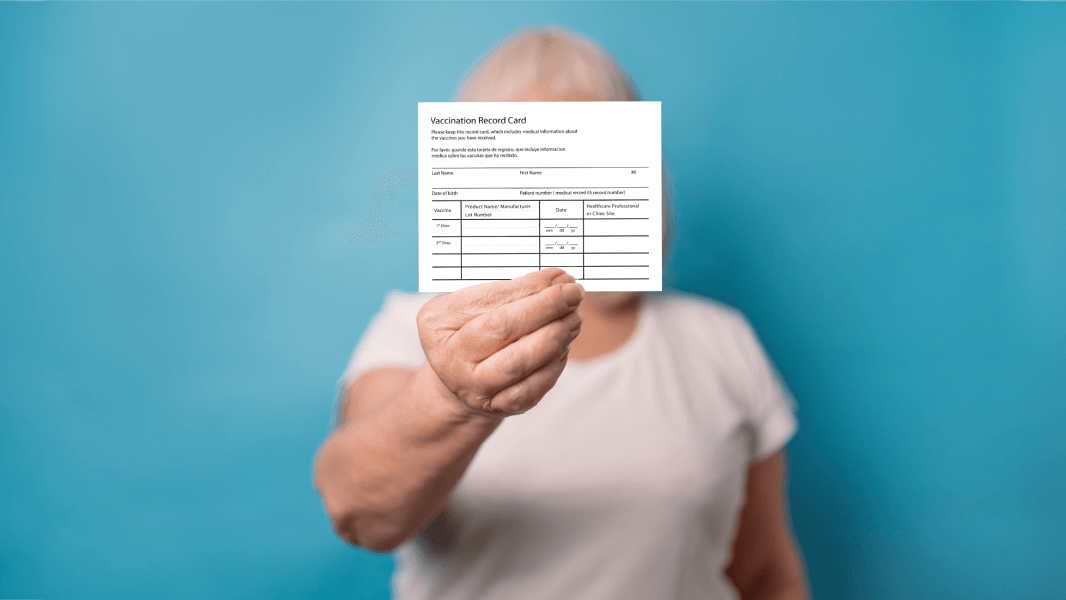

6. Shingles National Immunisation Programme payments
Since the Shingles National Immunisation Programme is classed as an essential service, your practice must actively call and recall patients for the vaccination and register to the calculating quality reporting service (CQRS). Payment is an item of service fee, which is paid at £10.06 per dose in eligible patients.13 See below to learn more about how payments work and the requirements.14
Not familiar with CQRS? Don’t worry – you can access CQRS training which includes job aids and tutorials to help your practice with tracking and monitoring.14
The shingles vaccination attracts quality and outcomes framework (QOF) points.15 Payment claims for the shingles programme are made monthly, and practices are only eligible for payment in the following circumstances, where all requirements are achieved:16
- The GP practice is contracted to provide vaccine and immunisations as part of additional services
- All patients in respect of whom payments are being claimed were on the GP practice’s registered list at the time the vaccine was administered, and all of the following apply:
- The GP practice administered the vaccine to all patients in respect of whom the payment is being claimed
- All patients in respect of whom payment is being claimed were within the cohort (as per the service specification section) at the time the vaccine was administered
- The GP practice did not receive any payment from any other source in respect of the vaccine
- The GP practice submits the claim within 6 months of administering the vaccine (commissioners may set aside this requirement if it considers it reasonable to do so)


illuminate is here to help you drive uptake of the shingles vaccination
Our team is on hand to help. If you have specific questions about the Shingles National Immunisation Programme or the shingles vaccination, please get in touch with GSK: https://gskpro.com/en-gb/contact-us/contact-us-form.
Want to hear more from your peers? Explore our Vaccine Education page to hear from our Immunisation Leads for their advice and tips on how best to roll out successful immunisation programmes and educate your team.

Support from GSK
We’re on hand to answer any questions you may have on the Shingles National Immunisation Programme. Get in touch with us at any point.

Vaccine education
Explore resources and hear from an immunisation expert to learn more about vaccines.
References
- UK Health Security Agency. Vaccination against shingles (herpes zoster) training deck for healthcare professionals. Available at: https://www.gov.uk/government/collections/shingles-vaccination-programme. Accessed August 2025.
- UK Health Security Agency. Shingles vaccination programme: expansion of SHINGRIX vaccine eligibility to all those who are severely immunosuppressed and aged 18 years and over. Published July 2025.
- NHS England. Why vaccination is safe and important. Available at: https://www.nhs.uk/vaccinations/why-vaccination-is-important-and-the-safest-way-to-protect-yourself/. Accessed August 2025.
- UKHSA Green Book: Shingles (herpes zoster): the green book chapter.
- Ardens shingles eligibility searches. Available at: https://support-ew.ardens.org.uk/support/solutions/articles/31000159014-shingles-eligibility-searches. Accessed August 2025.
- NICE guidelines NG218. Vaccine uptake in the general population. Available at: https://www.nice.org.uk/guidance/ng218/chapter/Recommendations. Accessed August 2025.
- UK Health Security Agency. Campaign assets. Available at: https://www.healthpublications.gov.uk/ArticleSearch.html?sp=St-57&sp=Sreset. Accessed March 2025.
- GSKpro resources. Available at: https://gskpro.com/en-gb/resources/.
- NHS England. Vaccine Storage and Handling - Cold Chain Policy. Published November 2024. Available at: https://www.england.nhs.uk/east-of-england/wp-content/uploads/sites/47/2025/03/East-Cold-Chain-Policy-V8_Nov-2024.pdf.
- Immform. Available at: https://portal.immform.ukhsa.gov.uk/Identity/Authentication/SignIn.
- Immunisations UK. Available at: https://immunisationsuk.co.uk/training/. Accessed August 2025.
- Local Government Association. Available at: https://www.local.gov.uk/our-support/coronavirus-information-councils/covid-19-service-information/covid-19-vaccinations/behavioural-insights/resources/second-vaccine-jab-compliance. Accessed August 2025.
- NHS England. Shingles toolkit. Available at: https://www.england.nhs.uk/london/wp-content/uploads/sites/8/2023/10/Shingles-GP-toolkit-3.pdf. Accessed August 2025.
- NHS CSU collaborative. https://welcome.cqrs.nhs.uk/about-cqrs/.
- NHS England. Quality and Outcomes Framework Guidance for 2025/26. Published April 2024. Available at: https://www.england.nhs.uk/wp-content/uploads/2025/03/quality-outcomes-framework-guidance-for-2025-26.pdf. Accessed August 2025.
- Shingles (catch up) vaccination programme 19/20. Available at: https://www.england.nhs.uk/wp-content/uploads/2019/03/es-shingles-catch-up-1920.pdf. Accessed August 2025.
- SHINGRIX Summary of Product Characteristics (United Kingdom).
- UK Health Security Agency. Vaccine update: issue 340, July 2023, shingles special addition. Available at: https://www.gov.uk/government/publications/vaccine-update-issue-340-july-2023-shingles-special-edition/vaccine-update-issue-340-july-2023-shingles-special-edition.
September 2025 | PM-GB-AVU-WCNT-230004 (V6.0)
For the SHINGRIX® (herpes zoster vaccine, recombinant, adjuvanted) prescribing information, click here.
